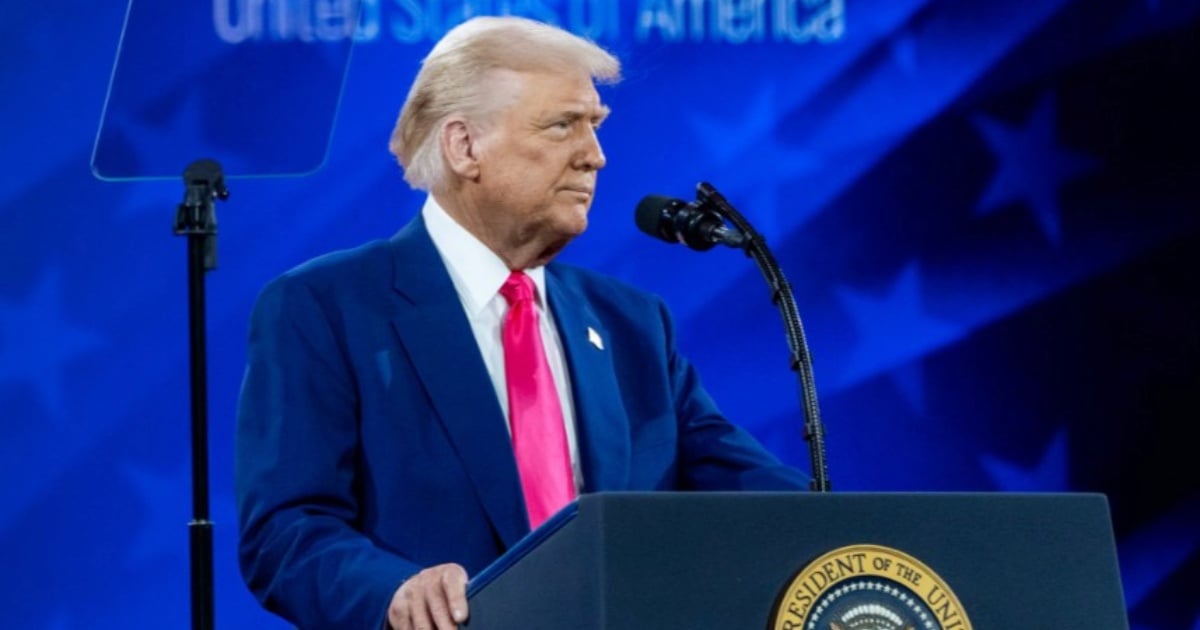
Related videos:
A federal judge in Seattle has blocked President Donald Trump's initiative to suspend the refugee admission program in the United States.
The executive measure, which aimed to indefinitely halt the resettlement of refugees, was declared illegal by Judge Jamal Whitehead, who argued that the president's action exceeds his authority and contravenes the will of Congress.
The context of the lawsuit
Since his return to the White House, Trump has implemented a series of executive orders to tighten immigration policies.
Among them was the suspension of the refugee resettlement program on the grounds that the country is facing “record levels of migration” and that it does not have the capacity to absorb a significant number of new migrants, especially refugees.
In addition to prohibiting the entry of refugees, his administration began cutting funds allocated to aid agencies that manage the resettlement and integration of these individuals in the country.
The refugee admission program was established by Congress in 1980 and has allowed the arrival of more than three million people fleeing war, persecution, or natural disasters.
This legal migration process is distinct from asylum, which is granted to individuals who are already in U.S. territory and seek protection.
Despite the historic support from both Democrats and Republicans, the program has been the subject of controversy in recent years.
During his first term, Trump also drastically reduced the number of refugees admitted annually.
Currently, around 600,000 people worldwide are awaiting resettlement in the United States. However, the suspension of the program has left thousands in limbo, including individuals who had already been approved by the U.S. government.
The plaintiffs and their arguments
The lawsuit was filed in Seattle by refugees who were directly affected by the suspension, as well as by major humanitarian organizations, including International Refugee Assistance Project, Church World Service, HIAS, and Lutheran Community Services Northwest.
These organizations claimed that Trump's measure forced them to lay off employees and reduce their operations, severely impacting the refugees who were already in the process of resettlement.
David Duea, director of Lutheran Community Services Northwest, reported the situation.
"We relocated people days before the inauguration, and now they are left without benefits. That means no housing, no assistance for children to enroll in school, and no case management. It was an inhumane act," he explained in statements reported by AP.
The Department of Justice argued that Trump's executive order was based on a law that allows the president to deny entry to foreigners whose admission "would be detrimental to the interests of the United States."
Nevertheless, Judge Whitehead deemed the presidential action equivalent to “an effective nullification of the will of Congress,” which established the program in 1980.
The ruling of Judge Whitehead
Whitehead rejected the government's arguments and stated that the suspension of the program violated the law and the principles of separation of powers.
In its preliminary ruling, it stated: “The president has a wide margin of discretion [...] to suspend the admission of refugees, but that authority is not unlimited.”
The judge highlighted the humanitarian consequences of the executive order, citing statements from refugees stranded in dangerous areas and families separated indefinitely.
“I have refugees who have sold everything they had before a trip that was canceled. I have spouses and children separated from their families in the United States, resettlement agencies that have laid off hundreds of employees,” he stated.
Outside the courthouse, organizations and activists celebrated the court's decision.
Tshishiku Henry, a refugee resettled in the United States in 2018 after fleeing the war in the Democratic Republic of the Congo, shared what being accepted as a refugee meant to him.
“It was a lifeline. They not only provided us with safety, but they also returned our future to us,” he pointed out.
The Trump administration, for its part, has indicated that it plans to appeal the decision to the Ninth Circuit Court of Appeals.
If the court or the Supreme Court grants a stay, the executive order could come back into effect while the litigation continues.
However, if the ruling is upheld, the refugee admission program will need to be temporarily resumed.
The controversy surrounding the refugee program reflects the deep divisions regarding U.S. immigration policy. As the case progresses through the judicial system, the fate of thousands of people seeking safety and stability in the United States remains at stake.
Frequently Asked Questions about the Court Ruling that Blocks Trump's Refugee Ban
Why did Judge Jamal Whitehead block Trump's order on refugees?
Judge Jamal Whitehead blocked Trump's order because he deemed it exceeds presidential authority and contradicts the will of Congress, which established the refugee admission program in 1980.
What is the impact of the court ruling on the refugee program?
The court ruling allows for the temporary resumption of the refugee admission program, impacting thousands of individuals in the resettlement process who were in limbo due to the suspension of Trump's order.
What arguments did the Department of Justice present to defend Trump's order?
The Department of Justice argued that Trump's executive order was based on a law that allows the president to deny entry to foreigners whose admission "would be detrimental to the interests of the United States", but Judge Whitehead rejected this argument.
Which organizations participated in the lawsuit against the suspension of the refugee program?
Organizations such as International Refugee Assistance Project, Church World Service, HIAS, and Lutheran Community Services Northwest participated in the lawsuit, arguing that Trump's measure forced them to reduce operations and severely impacted refugees already in the resettlement process.
Filed under: